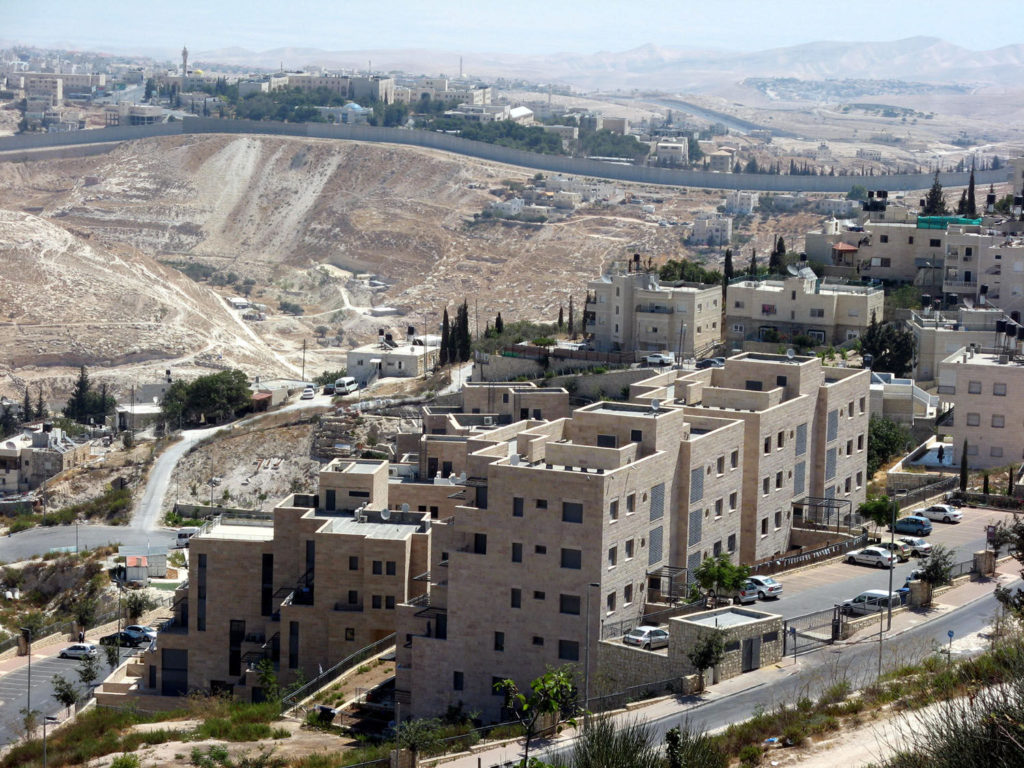Australia/Israel Review
Scribblings: Article 49(6) and the Settlements
Sep 26, 2016 | Tzvi Fleischer

Tzvi Fleischer
There is only one argument for the oft-heard claim that Israeli settlements in the West Bank are illegal. It relies on Article 49(6) of the 1949 Fourth Geneva Convention which states that the “Occupying Power shall not deport or transfer parts of its own civilian population into the territory it occupies.”
While there are good reasons, which I won’t get into here, to argue that the Fourth Geneva Convention does not apply to the West Bank, the main bone of contention about 49(6) is a matter of interpretation – what does “deport or transfer” mean?
Those who argue that any Jewish settlement in the West Bank is illegal have what seems a rather counter-intuitive interpretation – that is, the Occupying Power must not allow, must somehow stop, any of its citizens from residing in the occupied land, even if they want to, even if they own property there, even if, were the territory not occupied, it would be perfectly normal and proper for them to do so. Is this what the parties who drafted it meant, rather than prohibiting forced deportations of unwanted citizens or minorities?
A key way to settle such questions of interpretation in international law is to look at state practice – how states generally interpret the relevant legal principle in their actions and public statements.
So international law academic Prof. Eugene Kontorovich of Northwestern University School of Law has done something that should have been done long ago – he has made a detailed study of state practice in interpreting 49(6).
His study, entitled “Unsettled: A Global Study of Settlements in Occupied Territories,” finds at least seven post-World War II cases, outside Israel, of belligerent occupation by states party to the Fourth Geneva Convention involving “settlers” moving to the occupied territory – East Timor, northern Cyprus, Western Sahara, Syria in Lebanon, Vietnam in Cambodia, Armenia in Azerbaijani Nagorno-Karabakh, and Russia in Georgian Abkhazia and Ukrainian Crimea.
In most of these cases, the degree of “settlement” that took place is very extensive. In both Western Sahara and northern Cyprus, Kontorovich finds the number of “settlers” is likely higher than original native inhabitants.
Yet in all seven cases Kontorovich finds that both foreign governments and international organisations like the UN virtually never allege these movements of settlers are illegal or violate Art. 49(6).
He concludes: “The most striking thing about the state practice is the ubiquity of settlement activity and the accompanying international acquiescence” during occupations. Further, “suggestions that Art. 49(6) prohibits mere facilitation [of settlement] by states, or even more broadly, requires them to take measures to prevent migration, have no support in state practice and international reaction to it.”
Regarding Israel, he says, the reaction to its West Bank settlements and interpretation of 49(6) generally applied is “entirely anomalous.” In less polite terms, what this means is that the claim that Israel’s West Bank settlements are illegal under international law requires blatant double standards that are simply never applied to any other analogous situation of “occupation”.
BDS and “Palestinian Civil Society”
Here’s a little exchange that that took place between two leading lights in the anti-Israel Boycott, Divestment and Sanctions (BDS) movements at a forum at the University of Westminster on May 25:
A Palestinian activist and scholar, Ruba Salih, who is chairing a session tries to correct [well-known radical historian] Ilan Pappé at one point, saying:
“Well the Palestinians launched BDS in 2005.”
“Yes, yes,” replies Pappé. He makes a face which shows that he knows that what is being said is not true. “Not really, but yes. OK. For historical records, yes.”
Ruba Salih then smiles, strokes his shoulder and makes clear: “That’s important”.
Pappé replies to her, nodding and smiling, quietly, embarrassed, patronisingly, knowingly: “It’s not true but it’s important.”
(You can see this exchange yourself at www.youtube.com/watch?v=IjPJSvTezSo)
This is very significant for anyone who wants to understand what is really behind BDS and its more extreme claims – for two reasons.
One is that Pappé is admitting that a key claim of the BDS movement – that they are only singling out Israel for a boycott because they were called upon to do so by Palestinian civil society – is nonsense. In fact, as British academic sociologist David Hirsh of the University of London recently noted in “Engage online”, what actually happened was that, seeking to imitate the boycott of South Africa, issued in response to an African National Congress call, “British anti-Israel activists started the boycott campaign and they persuaded people in Palestine to issue the ‘call'”.
What is even more enlightening than this admission is that not only does Pappé make it clear he knows this key claim of the BDS movement is false, he is nonetheless willing to go along with it because its “important” – ie., it helps the shared anti-Israel cause.
Frankly, this willingness to bend, distort or even invent facts to serve an anti-Israel political agenda has long been characteristic of Pappé’s work.
Noted historian Prof. Benny Morris clearly established this in his review of three of Pappé’s books in The New Republic in March 2011 in a piece entitled “The Liar as Hero.”
Morris found Pappé “at best… one of the world’s sloppiest historians; at worst, one of the most dishonest”, said Pappé “often… alleges that a source tells us the opposite of what it in fact says, but he will also simply and straightforwardly falsify evidence,” that “Some of Pappé’s ‘historical’ assertions are, quite obviously, politically motivated,” and concluded that “Pappé’s contempt for historical truth and factual accuracy is almost boundless.”
So it is good to see Pappé openly admitting at that forum what Morris established about him – that he is happy to twist and even falsify historical facts to serve his virulently anti-Zionist views.
Now if only Pappé’s Australian fans could understand what he himself has admitted.
Tags: Anti-Zionism






